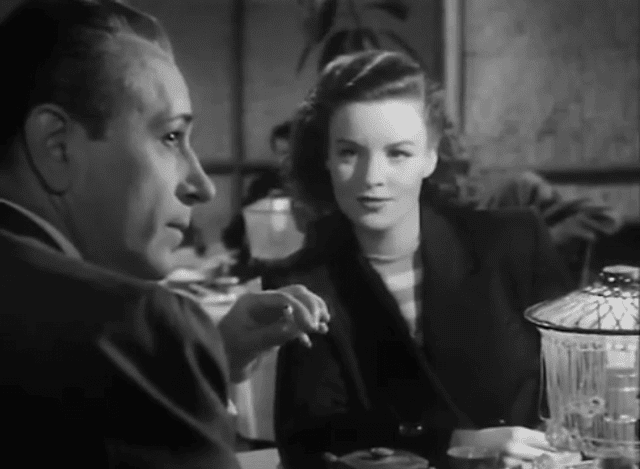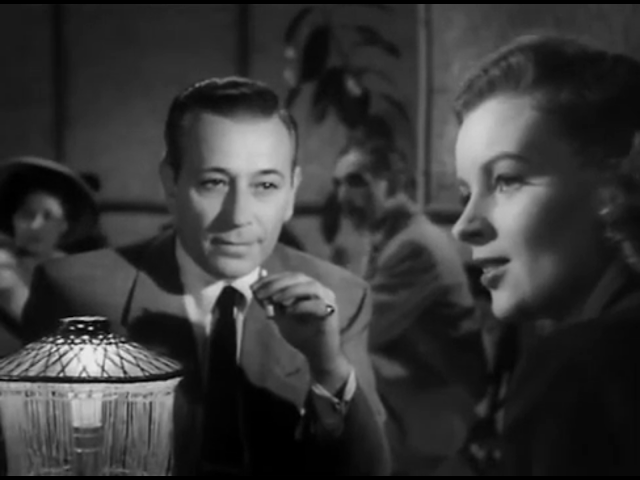Intrigue (1947) is not featured on the great and many bountiful film noir discussion websites and books because it is a classy example of the film noir style.
It does however bear repeat viewing, and combines noir underworld themes with geo-politics and American foreign policy, to create an interesting set of circumstances in post-war China ― narrative forming, and not racially aware in a fashion that was not uncommon in the 1940s, although it has no intention to offend.
Intrigue’s intention in fact, as its happy ending ― an element which pulls it away from its underworld noir roots, as well as the rootless and entrepreneurial criminality portrayed by George Raft, as it central character.
Unlike many a noir hero, because he is in fact a war hero. George Raft as Brad Dunham comes good ― he’s great with the kids, which we see in several quite uncomfortable scenes in which young Chinese actors make jokes about Brooklyn and George Raft ruffles a lot of hair. And there is the happy ending.
This is war after all, and foreign policy. Via the powers of journalism, the morally dubious become virtuous and all star American values are installed.
The set up of the character of Brad Dunham is fairly typical of film noir ― the skills and talents of war are adapted to civilian street to criminal ends.
The fact of the black market being the criminal side of warfare is common, and the story ― for its coming and going and fairly complex characters ― is very simple: one man’s journey as he makes his final few steps out of the war zone into the featureless, corporate, safely married and safely ambitious world of the post-war dream
There is also something of sudden jump in the action ― a slump perhaps in the eyes of some ― and interesting item of historical reporter for others ― about how the black market devalues the Chinese dollar, thus keeping rice and `canned goods' from the mouths of children, and this kind of sentimentality does hang over things, in a way that true film noir die-hards will not necessarily wish to see.
Other clichés that keep arise include Jay C. Flippen as a salt-of-the-earth bartender, Philip Ahn as the trusty native sidekick, Miller and Dan Seymour as Hollywood heavies who fall far short in terms of menace and violence, and somehow George Raft’s bomber jacket and white aviator's scarf can really make you pine for the beautifully still, menacing performances for which he was rightly famed.
Where Intrigue fails hardest, is in its complete unwillingness to tackle the fascinating and deadly subject of post-war medicine smuggling ― this was used as one of the most effective plotlines of the era, only a year or so later in The Third Man. This is where Intrigue starts ― post war pilot George Raft flying a plane-load of drugs.
At close of play, June Havoc remains the star ― with her curious habit of always appearing in evening dress ― and her open villainy in her smuggling of food and medicine.
How powerfully bad this would have been in real life ― and the fact of the communism of Mao Tse Tung which was at that time starting to dominate China ― all make for scenes that only the most brutally real of film noir scripts could really have shown.
Instead, Intrigue is just something of a romp ― entertaining but perhaps not appropriate when there are politics galore to be tackled ― not always the favourite subject of Hollywood, and in this case understandably close to the recent World War.
 |
| George Raft and Helena Carter in Intrigue (1947) |










